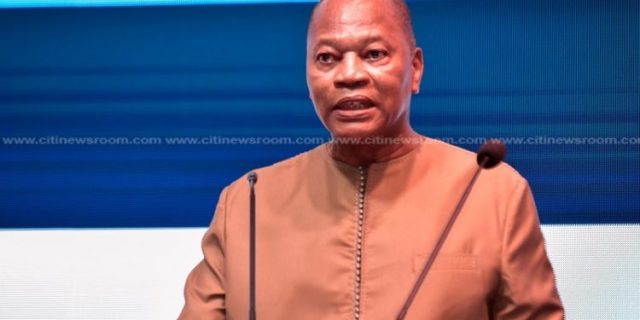Dr. Mohammed Ibn Chambas, former United Nations Envoy to West Africa and the Sahel Region, has cautioned Ghanaians to be wary of the divisive, religious, and ethnic sentiments emerging ahead of the 2024 General Election.
He stated: “The commitment to the betterment of our country is a collective responsibility and must transcend political, religious, and ethnic boundaries.
“Unfortunately, we are seeing some divisive tendencies in our society, and we must all be careful about them, especially when we have elections in 2024. When it comes to election year, all our demons come out.”
He made the remarks at STAR Ghana Foundation’s anniversary lecture on “Empowering Citizens and Enriching Nation Building”, at the British Council, in Accra, on Friday.
The lecture, which formed part of activities marking the 5th anniversary of STAR Ghana Foundation, was attended by Prof Akilagpa Sawyerr, a former Vice Chancellor of the University of Ghana, lawyers, Civil Society Organisations (CSOs), organised groups, media among others. Dr Chambas said the criteria used in electing the leaders of the country must transcend religious and ethnic considerations. Thus, the yardstick the citizens should use must be based on the messages, policy recommendations, and alternatives on how the best political parties manage the affairs of the country. He, therefore, urged citizens and political parties to make the 2024 General Election an issue-based campaign. “So please let us focus on messages when we are choosing our leaders in this country,” he emphasised. He expressed concern that despite Ghana’s significant progress in democracy, there were lingering challenges that prevented the country from fully harnessing the benefits of democracy.The former UN envoy said Ghana’s recent drop on the corruption perception index, coupled with a drop in World Press freedom ratings, had undermined the country’s democratic credentials. He suggested that Ghana should address those challenges by creating an open dialogue platform for citizens to actively participate in governance.
The dialogue platforms, he explained, would serve as an avenue where citizens could share their concerns, aspirations, ideas, and feelings about governance in the country. STAR Ghana Foundation describes itself as a national centre for active citizenship and philanthropy. It works towards the development of a vibrant, well-informed and assertive civil society able to contribute to transformational national development and inclusive access to high-quality, accountable public services for all Ghanaian citizens.









































